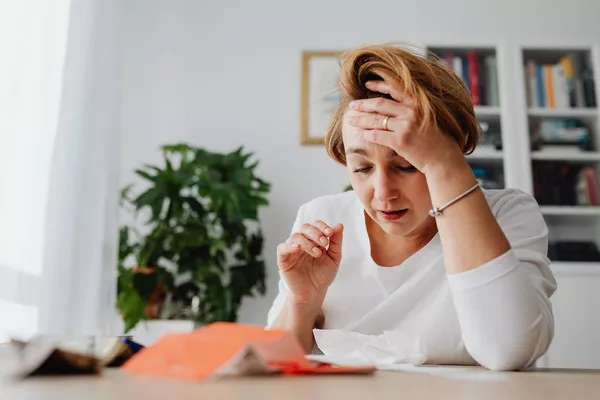Bipolar disorder, also known as manic-depressive illness, is a mental health condition characterized by extreme mood swings that range from episodes of mania to depression. It affects millions of people worldwide and can be difficult to diagnose, as symptoms can vary widely and may be mistaken for other mental health conditions.
If you suspect that you or someone you know may have bipolar disorder, it’s important to seek professional help. With proper treatment and support, people with bipolar disorder can lead fulfilling and productive lives. In this article, we’ll explore the signs and symptoms of bipolar disorder and provide guidance on when to seek professional help.
Understanding Bipolar Disorder
Bipolar disorder is a mental health condition that affects mood, energy, activity levels, and the ability to function. There are several types of bipolar disorder, including bipolar I, bipolar II, cyclothymic disorder, and other specified and unspecified bipolar and related disorders.
Bipolar I disorder is characterized by manic episodes that last for at least a week and may be accompanied by depressive episodes. Bipolar II disorder involves less severe manic episodes, called hypomania, but is still accompanied by depressive episodes. Cyclothymic disorder involves milder symptoms of mania and depression that last for at least two years.
- See Also: 5 Causes of Bipolar Disorder
Symptoms of Bipolar Disorder
The symptoms of bipolar disorder can vary widely from person to person, and may include the following:
1.Manic Episode Symptoms:
- Elevated mood: Feeling euphoric or “high” for an extended period of time, sometimes for days or weeks.
- Increased energy: Having a lot of energy, feeling restless, or being unable to sleep.
- Rapid speech: Speaking quickly and rapidly, sometimes with rapid changes in topic.
- Racing thoughts: Having racing thoughts, feeling like one’s mind is racing or jumping from one idea to another.
- Grandiosity: Feeling overly confident or invincible, believing one can accomplish anything.
- Risky behavior: Engaging in risky behavior, such as drug use, reckless driving, or promiscuous behavior.
2.Depressive Episode Symptoms:
- Depressed mood: Feeling sad, hopeless, or empty for an extended period of time.
- Loss of interest: Losing interest in activities that were once enjoyable.
- Changes in appetite: Having changes in appetite or weight.
- Insomnia or hypersomnia: Having difficulty sleeping or sleeping too much.
- Fatigue or loss of energy: Feeling fatigued or lacking in energy.
- Difficulty concentrating: Having difficulty concentrating or making decisions.
- Thoughts of suicide: Having thoughts of suicide or self-harm.
3.Hypomanic Episode Symptoms:
- Elevated mood: Feeling euphoric or “high” for a shorter period of time than in a manic episode.
- Increased energy: Having a lot of energy, feeling restless, or being unable to sleep.
- Racing thoughts: Having racing thoughts, feeling like one’s mind is racing or jumping from one idea to another.
- Grandiosity: Feeling overly confident or invincible, believing one can accomplish anything.
When to Seek Professional Help
If you or someone you know is experiencing symptoms of bipolar disorder, it’s important to seek professional help. A mental health professional, such as a psychiatrist or psychologist, can conduct a thorough evaluation and determine if a diagnosis of bipolar disorder is appropriate.
Some signs that it may be time to seek professional help include:
- Uncontrollable mood swings: If you are experiencing extreme mood swings that are impacting your ability to function in daily life, it may be time to seek professional help.
- Disruptive behavior: If your behavior is disruptive or causing problems in your relationships, work, or other areas of your life, it’s important to seek help.
- Thoughts of self-harm or suicide: If you are experiencing thoughts of self-harm or suicide, it’s important to seek immediate help. You can call a crisis hotline or go to an emergency room for assistance.
- Family history: If you have a family history of bipolar disorder or other mental health conditions, you may be at a higher risk for developing bipolar disorder yourself.
- Substance use: If you are using drugs or alcohol to cope with your symptoms, it’s important to seek professional help to address the underlying issue.
- Lack of response to other treatments: If you have tried other treatments for your symptoms, such as therapy or medication, and have not seen improvement, it may be time to consider a different approach.
Getting Help for Bipolar Disorder
If you suspect that you or someone you know may have bipolar disorder, there are several steps you can take to get help:
- Talk to a mental health professional: A psychiatrist or psychologist can conduct a thorough evaluation and determine if a diagnosis of bipolar disorder is appropriate.
- Seek support: Joining a support group can be helpful in connecting with others who are experiencing similar challenges.
- Develop a treatment plan: With the help of a mental health professional, develop a treatment plan that may include medication, therapy, lifestyle changes, and other interventions.
- Learn coping strategies: Learn coping strategies for managing your symptoms, such as stress reduction techniques and self-care practices.
- Build a support network: Building a support network of friends, family, and other supportive individuals can be helpful in managing the challenges of bipolar disorder.
In conclusion, bipolar disorder is a complex and challenging mental health condition, but with proper treatment and support, people with bipolar disorder can lead fulfilling and productive lives. Recognizing the signs and symptoms of bipolar disorder is the first step in getting help. If you or someone you know is experiencing symptoms of bipolar disorder, it’s important to seek professional help and develop a comprehensive treatment plan. Remember that you are not alone, and there are resources available to help you manage your symptoms and live a fulfilling life.
Related Topics:


























